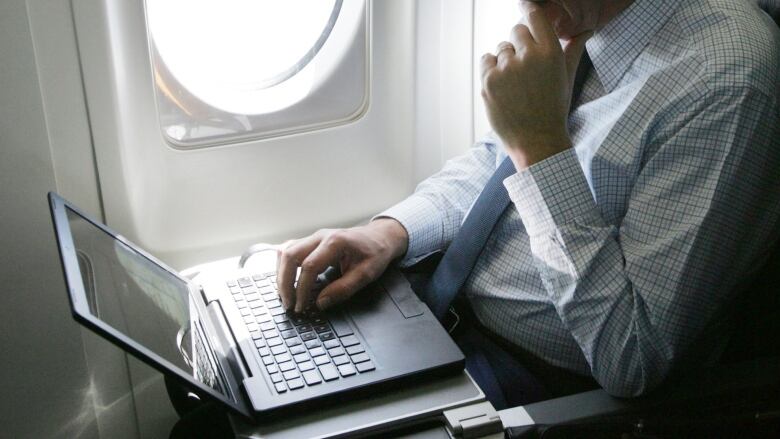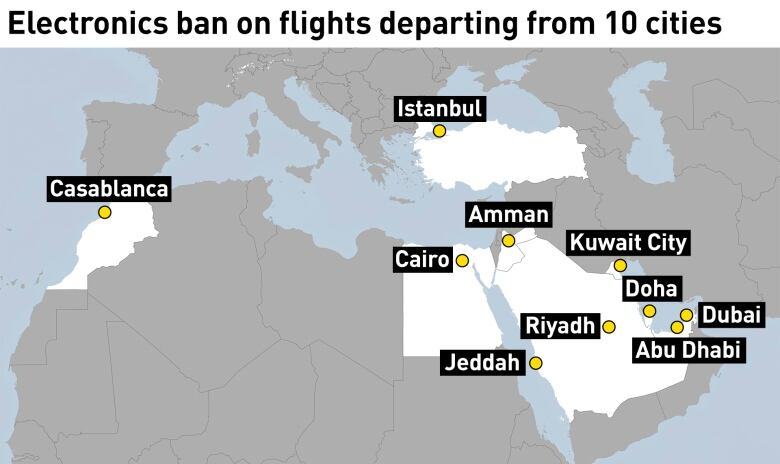Extending U.S. laptop ban to Europe would cost flyers $1B a year, IATA says
600 million passengers a year fly between Europe and North America

A proposal to ban laptops in cabin on flights between Europe and North Americaisn't even official, but critics already sayit would cost travellers $1 billion US a year and be a nightmare to implement.
The White House raised hackles in March with aban on the use of laptops on flights between the U.S. and 10 Middle Eastern and North African airports, citing nebulous safety concerns that the computers could be used to conceal explosive devices.
Critics at the time said the move amounts toa thinly veiled attempt to favour U.S. carriers, who have long accusedMiddle Eastern based airlines such as Emirates andEtihadof unfairly subsidizing long-haul business travel flights.
The ban proposal is now set to be extended to Europe in some manner, a move that the International Air Transport Association (IATA) said would cost more than $1 billion to implement and be a logistical nightmare to adhere to for airlines.
IATA, whichrepresents 265 airlines, says as many as 65 million people a year travel between Europe and North American on nearly 400 daily flights. Many of the passengers arebusiness travellers who rely on their computers to work during flights.

Specifically, IATA says a laptop ban on transatlantic flights would cost$655 million US a year in loss of productive time, $216 million in travel delays at airportsand $195 million in reduced well-being.
Aviation officials in the EU and U.S. are meeting on Wednesday to discuss aviation security, and IATA headAlexandre de Juniaccalled on officials in an open letterto consider alternatives to a ban, such as methods to detect traces of explosives at airport security checkpoints, better training of staff and use of behavioural detection officers.
Critics of the ban note that moving dozens if not hundreds of laptops from inside cabins into the plane's cargo hold presents a safety threat of its own, as they contain lithium ion batteries, which have been known to catch fire.
- Air transport of dangerous lithium ion batteries investigated
- Lithium battery shipments on passenger planes 'an unacceptable risk'
"These alternative measures would also avoid the concentration of lithium battery-powered devices in the cargo hold of passenger aircraft which is deemed to create an additional safety threat," De Juniac wrote.
Officials from the U.S. Department of Homeland Security met last week with high-ranking executives of the three leading U.S. airlines American, Delta and United and the industry's leading U.S. trade group to discuss the logistics of extending any electronics ban.
It's estimated roughly two-thirds of travellers on transatlantic flights fly with an electronic device larger than a cellphone, which would meanchecking all carry on bags would require an increase in security.
Airlines still hope to have a say in how the policy, if it proceeds, would beput into effect at airports to minimize inconvenience to passengers.
With files from The Associated Press and Reuters












_(720p).jpg)


 OFFICIAL HD MUSIC VIDEO.jpg)
.jpg)



























































































